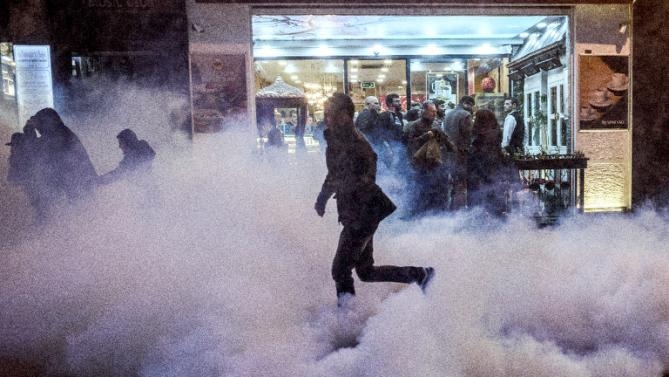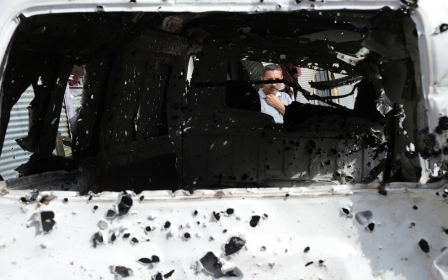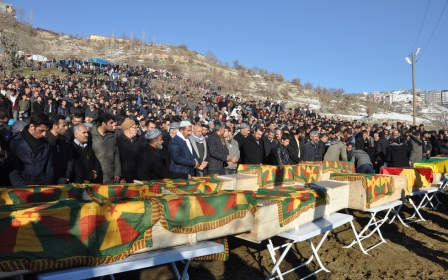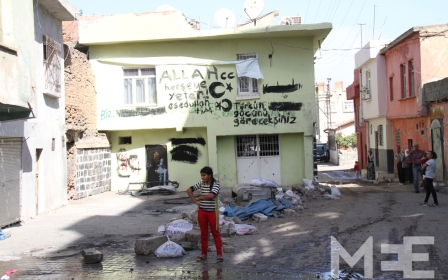Clashes in Diyarbakir amid protests against anti-PKK crackdown

Turkish police on Saturday fired water cannons and tear gas to disperse thousands of protesters who were demonstrating against a three-month military crackdown backed by a curfew in the mainly Kurdish southeastern city of Diyarbakir.
The Turkish authorities have kept the curfew in place in the central Sur district of Diyarbakir since 2 December in a bid to root out militants from the Kurdistan Workers' Party (PKK).
Activists say civilians have been killed and clashes have caused major damage to its historic mosques and other buildings.
Thousands of people gathered in the city's Kosuyolu Park on Saturday to demand an end to the curfew, and specifically a 24-hour break to rescue those still trapped in Sur, an AFP correspondent said.
The meeting began peacefully with speeches from Kurdish leaders, but participants then spread in different directions, with the police firing water cannons and tear-gas cannisters.
Some protesters threw stones and noise bombs at the police, and at least 10 people were arrested. One person was badly wounded by gunfire in the clashes.
According to the army, 237 "terrorists" have been killed in the curfew operation in Sur so far. Kurdish activists have cast heavy doubt on the figures.
Turkey has carried out the military operations in several urban centres in the southeast over the past few months, marking a new escalation in half a year of fighting with the PKK since a two-and-a-half year truce collapsed in July.
The PKK launched a formal insurgency against the Turkish state in 1984, initially fighting for Kurdish independence although it now presses more for greater autonomy and rights for the country's largest ethnic minority.
The conflict has left tens of thousands dead.
Middle East Eye propose une couverture et une analyse indépendantes et incomparables du Moyen-Orient, de l’Afrique du Nord et d’autres régions du monde. Pour en savoir plus sur la reprise de ce contenu et les frais qui s’appliquent, veuillez remplir ce formulaire [en anglais]. Pour en savoir plus sur MEE, cliquez ici [en anglais].




